Acer Predator Helios 300 Gaming Laptop Review: A New Value King
Why you can trust Tom's Hardware
Price Analysis & Conclusion
It's refreshing to see a laptop that sticks to the basics. The Acer Predator Helios 300 offers an Intel Core i7-7700HQ and an Nvidia GeForce GTX 1060 at a low $1,100. Acer’s asking price is sure to shake up the mid-range gaming laptop market, especially considering that its competition charges at least a few hundred dollars more for features that gamers aren’t always interested in. The Helios’s appeal comes from the fact that it’s plain and simple, and fast enough.
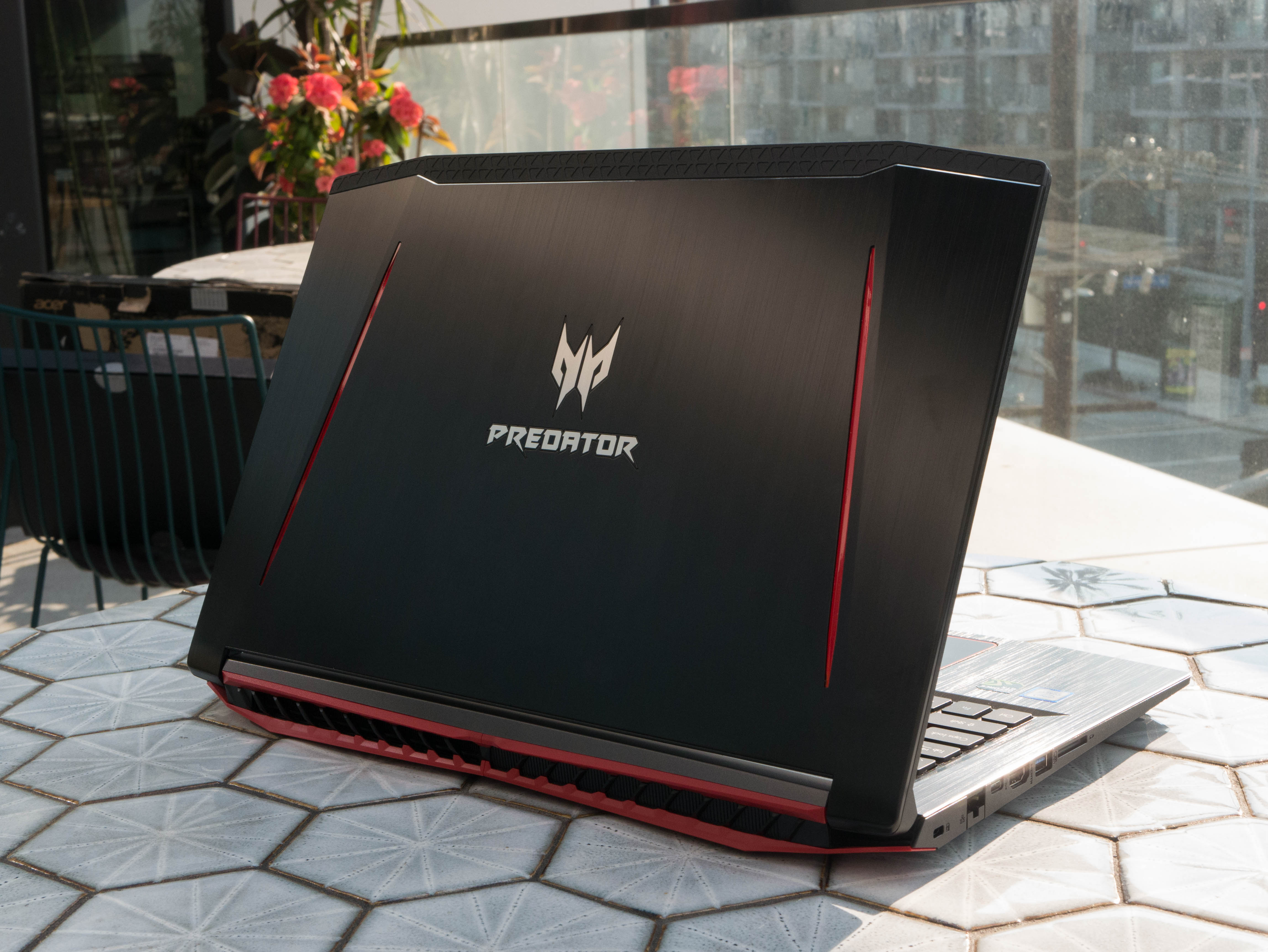
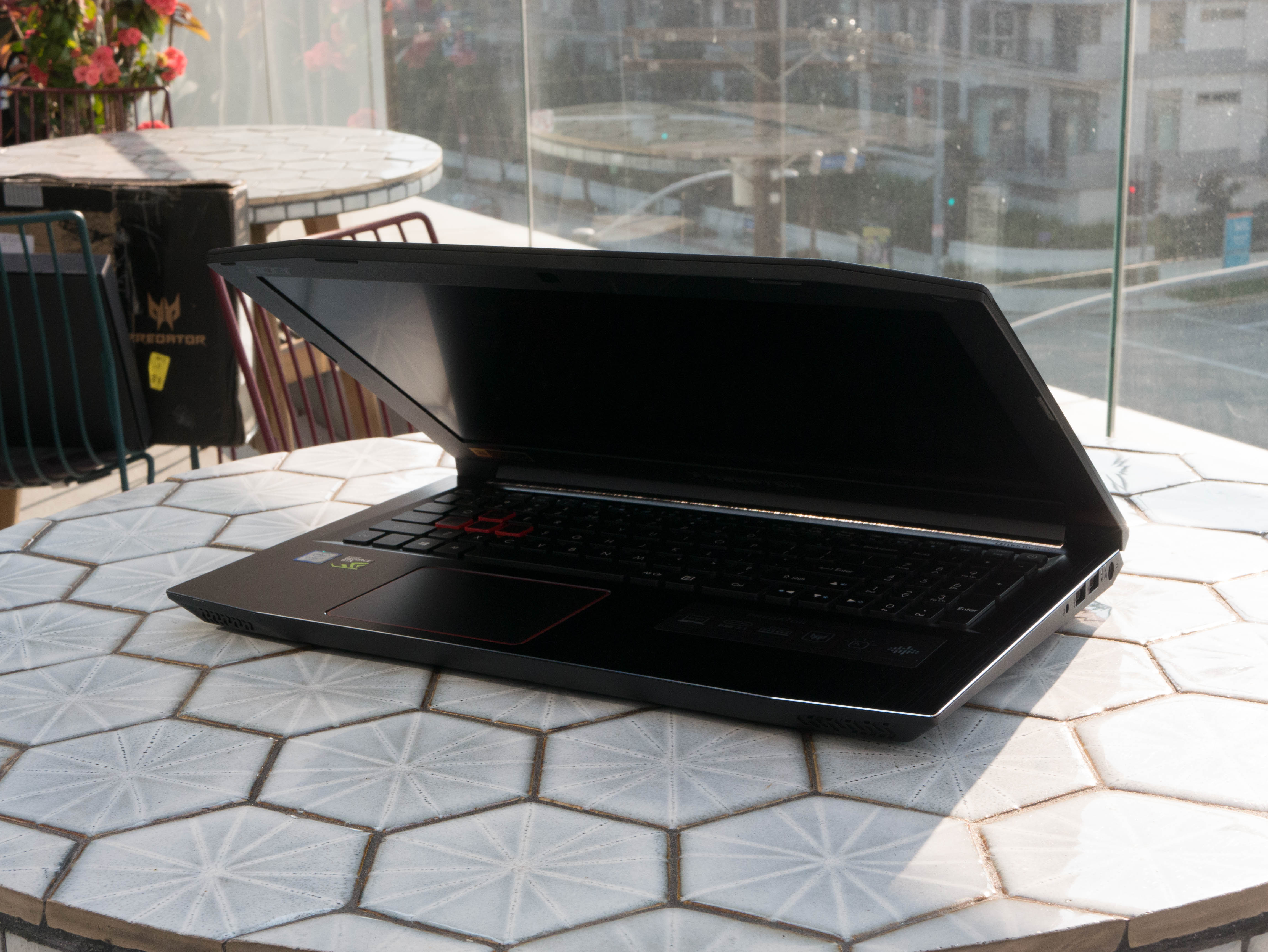
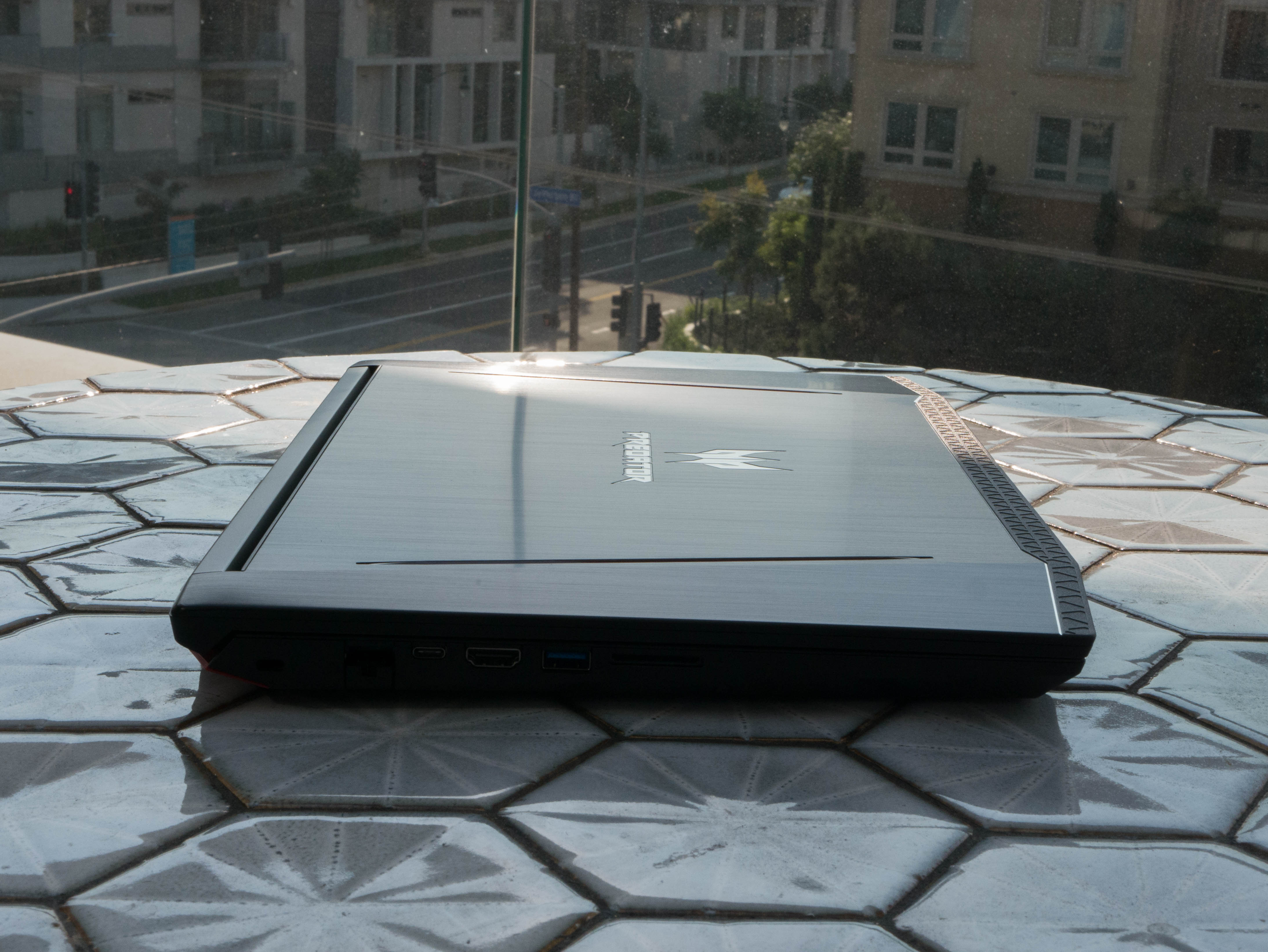
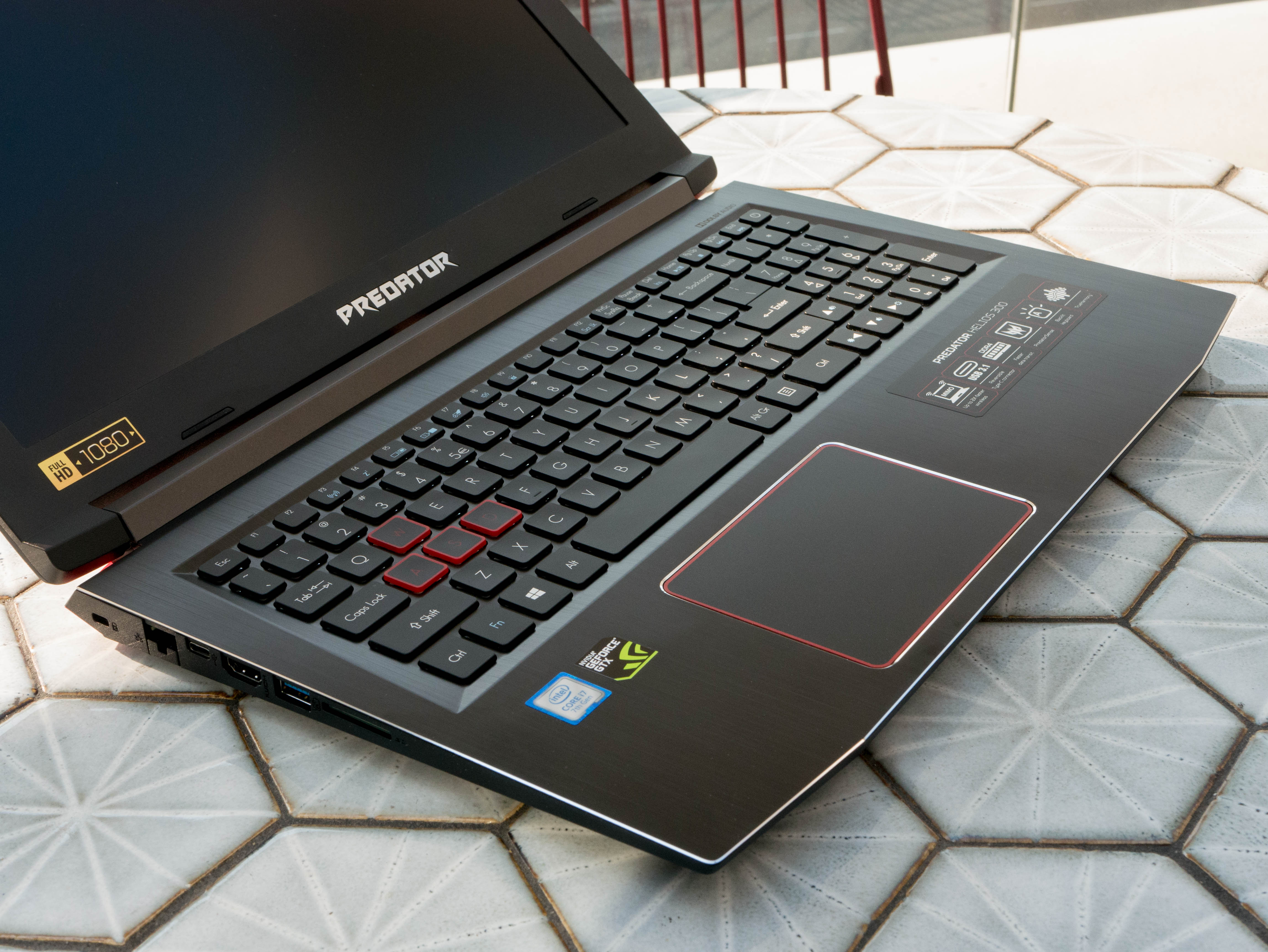
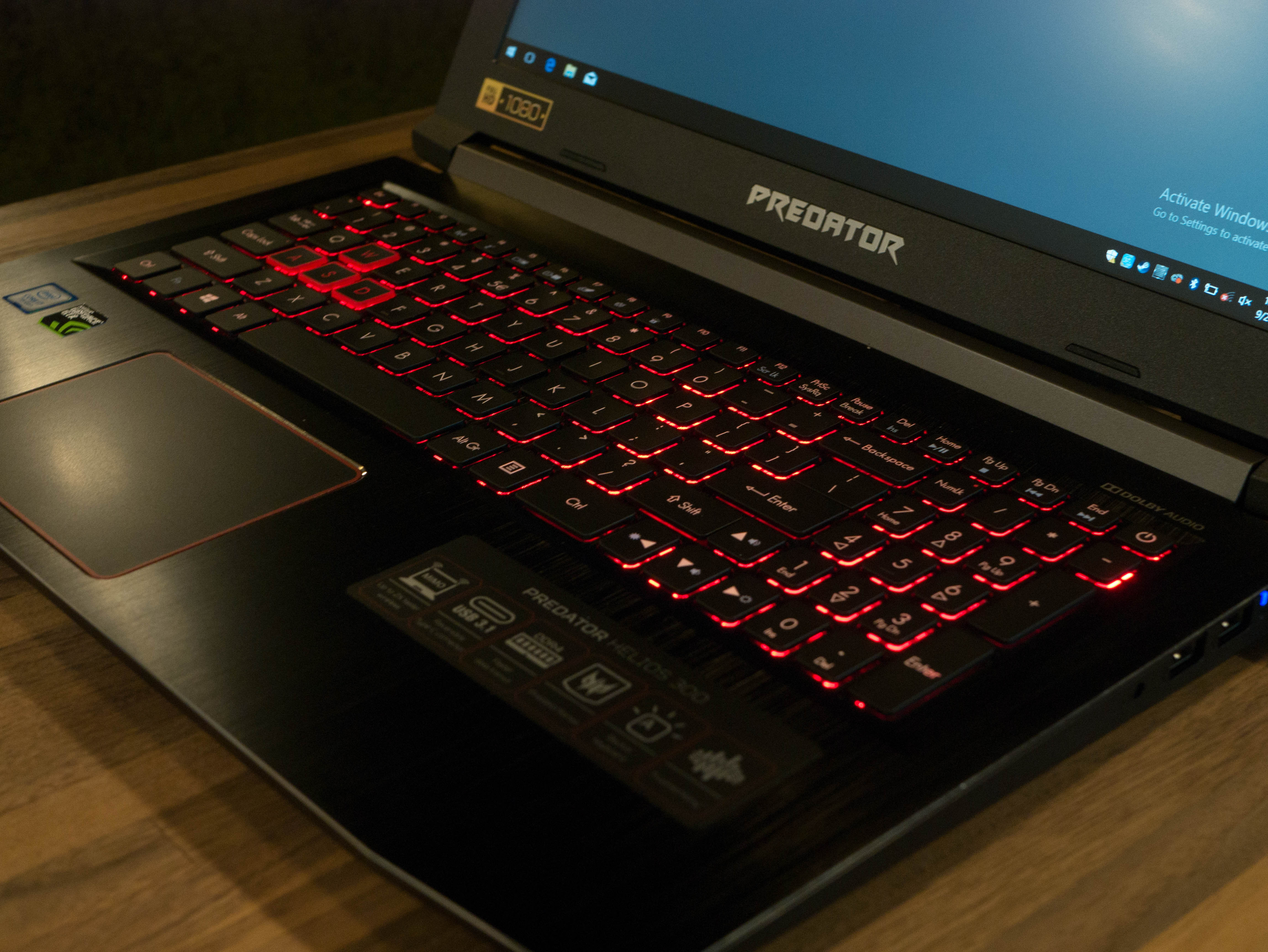
We didn’t expect the Helios 300 to top our benchmark charts; it only has a GTX 1060, after all. But with its GPU, it was able to contend with the AVADirect Whitebook 16K2, a laptop with similar specifications, but in a more compact form factor. In particular, the 3DMark and CompuBench scores are virtually even. The Helios even shares the same CPU as the Whitebook and MSI GE63VR Raider, so the 3DMark Physics scores and Cinebench single and multi-core scores were indistinguishable as well. Unfortunately, the Helios’s weakness is its 256GB Micron 1100 SSD, which delivered decent 4K random speeds, but lacked 128K sequential speeds.
The Helios’s gaming performance is its main selling point, especially at its price. The Helios isn’t the strongest laptop in our comparison; that distinction goes the more costly MSI Raider. However, it gives the competition a run for its money, especially in platform-based titles such as GRID Autosport and Hitman, where 60 FPS is within the GTX 1060’s realm of possibility. The Helios’ biggest challenges are GPU-dependent titles such as Metro: Last Light Redux and Rise of the Tomb Raider. In these cases, a more powerful GPU makes a big difference.
The Helios exhibited outstanding thermal performance. Our Optris camera detected temperatures hovering around mid-60°C, but the GPU-Z log illustrates lower maximum temperatures. The Whitebook’s maximum temperature is over 20°C warmer due to its thinner form factor. The Helios is the coolest running GTX 1060-based laptop we’ve tested.
Our biggest criticism is this laptop's mediocre battery life. The Helios is outfitted with a 4-cell, 48Wh battery, which only produced just over 100 minutes of game time. By comparison, the Whitebook contains a larger 64.98Wh battery despite its thinner form factor. Taking a look at the interior, you’ll find that the Helios battery sits next to the HDD slot; removing that in favor of a beefier battery could have improved performance here, but at the expense of HDD upgradeability. Tradeoffs. Always tradeoffs.
The Helios display is also strong. There isn’t anything special about it, per se. It’s a FHD IPS display with no extra features like G-Sync; nor does it have a high refresh rate. But its accuracy punches above its weight class. The contrasts were the highest we’ve seen in a display at this price. The grayscale accuracy is also decent. The Helios’ display has above average gamma, giving it slight over-saturation at certain brightness settings. The main issue is the poor color accuracy, which you’ll notice in reds, greens, blues, magentas, and yellows.
The metal lid and plastic bottom panel don’t set the Helios apart from its competition; Asus, Gigabyte, and MSI use the same approach on many of their models. However, the fact that Acer included metal in its construction should serve as a wake-up call for competitors; fragile plastic builds are no longer competitive, even in sub-$1,500 laptops. If customers are to use laptops as portable gaming systems as intended, then every bit of reinforcement will be taken into consideration.
Get Tom's Hardware's best news and in-depth reviews, straight to your inbox.
Our configuration of the Acer Predator Helios 300 costs $1,100, which is unheard of in a laptop with a GTX 1060 GPU. However, Acer offers models with larger SSDs, a 1TB HDD, additional memory, and wider 17.3” displays.
At $1,100, it’s hard to pass up the Helios, especially when the Whitebook has near identical specs for $1,850—a $750 price hike for a faster SSD and a thinner form factor. The lower end Sager NP6852 is available on XoticPC for $880, which will save you $220, but in demanding games such as Rise of the Tomb Raider, the frame rate is almost halved. An even more budget-conscious laptop like the Aspire VX 15 is frequently priced higher than the NP6852 at around $1,000, making the Helios a no-brainer in terms of price/performance, build quality, and features.
Acer has done a stellar job with the Predator Helios 300. It offers gaming performance that’s unparalleled at its price point, making it our top value choice for gaming laptops.
MORE: Best Gaming Laptops
MORE: Gaming Laptop Previews
MORE: All Laptop Content
-
AgentLozen ReplyAlexander Quejado said:Acer has done a stellar job with the Predator Helios 300. It offers gaming performance that’s unparalleled at its price point, making it our top value choice for gaming laptops.
This laptop wasn't given an award? I was under the impression that hardware that performs well and was an excellent value for it's class usually got editor awards.
/shrug -
chequecer60 Come on guys. This laptop has the same specs, plus an RGB keyboard, USB 3.1 Type-C and Display Port. $999 before shipping. If you use their promo code it's $949.Reply
https://www.cyberpowerpc.com/system/Halloween-Tracer-II-15-VR
Make sure to get the free mouse pad. -
anbello262 Reply20324198 said:Alexander Quejado said:Acer has done a stellar job with the Predator Helios 300. It offers gaming performance that’s unparalleled at its price point, making it our top value choice for gaming laptops.
This laptop wasn't given an award? I was under the impression that hardware that performs well and was an excellent value for it's class usually got editor awards.
/shrug
Maybe the article was silently updated, but I can clearly see that it does have an award... -
AgentLozen I see that now. I'm 99% confident that award wasn't there when I originally posted that message. Best explanation is that either 1. I'm blind or 2. The article was ninja-editedReply -
DuncDog There were some things missing from this review that seems out of place given the normal processes for Tom's Hardware Reviews... CPU Stress Testing, CPU Temperature Testing, CPU/GPU Throttling Testing, Audio Ramp Up of Fan Assembly?Reply
I only recalled seeing NotebookCheck's review back in August of an almost identical sku Helios 300, and seeing markedly different results here in so far as Temps are concerned.
>For instance, here is a direct quote from their review of the cooling assembly:
"Our stress test showed that the heat produced by the CPU and GPU is not transported out of the case fast enough. We measured a maximum CPU temperature of 97 °C (~206.6 °F). Nonetheless, the CPU managed to keep up the core clock rate over the entire one-hour test period. The maximum temperature we measured on the GPU was 84 °C (~183.2 °F). It has no thermal throttling."
>Where was any of that here? They also noted this about the fan assembly on their unit:
"What bothered us, however, was the high-frequency noise that the fans started emitting at partial load."
Unless Acer pulled a massive factory side initiative to resolve both of those issues, there seem to be some pits in the Tom's Review of this Laptop because the striking difference in readings gives the impression of 2 entirely different pieces of hardware. We are taking order of magnitude differences here. 97C vs ~60C on CPU and 82C vs 67C on the 1060s.
Here is the other review for reference:
https://www.notebookcheck.net/Acer-Predator-Helios-300-7700HQ-GTX-1060-Full-HD-Laptop-Review.242962.0.html